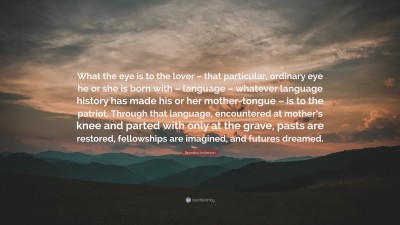

Third, the nation is imagined as ‘sovereign’ because the concept of the nation itself was born in an age when the Enlightenment and Revolution were destroying the legitimacy of the divinely ordained, hierarchical dynastic realm.

Second, the nation is imagined as ‘limited’ because it has finite, yet sometimes elastic, boundaries, beyond which other nations lie. First, the nation is ‘imagined’ simply because members of any particular nation will never meet most of their fellow members, yet in the minds of each lives the image of their communion. There are four key elements to this definition. Benedict Anderson defines the nation as ‘an imagined political community – that is culturally imagined as both inherently limited and sovereign’. In order to grasp what nationalism is, one must understand the concept of “the nation”.

Historically, ethnic nationalism has been mobilized to justify ethnic cleasning, genocide and holocaust of Jews, Roma and LGBT people, as in the cases of Nazi Germany and Mussolini’s Italy.

Such ethnic nationalism emerging in Germany and that influences nation-building processes in both Eastern Europe and Scandinavia focused on belonging defined by ethnic identity, language, religion and similar traits. The German philosopher Johan Gottfried Herder (1744-1803) in contrast conceptualized nationalism as a form of “Volksgeist”, a unique spirit of an ethnic nation rooted in ther primeval characters, where the authentic “people” was linked to a particular territory, history and culture. Civic nationalism is grounded in inclusionary values of freedom, tolerance and equality. According to Rousseu’s civic nationalism, the nation is built on demos – the people – and sovereignty thus belonged to the nation and the people. The former is linked to the ideas of the French political philosopher Jean Jacques Rousseau in the context of the French revolution. Historically, the concept of nationalism has been divided between “civic” and “ethnic” nationalism. Modernists, in contrast, conceptualize nations as primarily modern constructs shaped by capitalism, industrialization, the growth of communications and transportation networks, and the powerfully integrative and homogenizing forces of modern nation-states. The former emphasizes the deep roots, ancient origins, and emotive power of national attachment. The classic debates in studies of nationalism have been divided between primordialists and modernists. Attempts to accomplish this congruence have been studied from a variety of perspectives. Nationalism is ‘a political principle which holds that the political and the national unit should be congruent’.


 0 kommentar(er)
0 kommentar(er)
